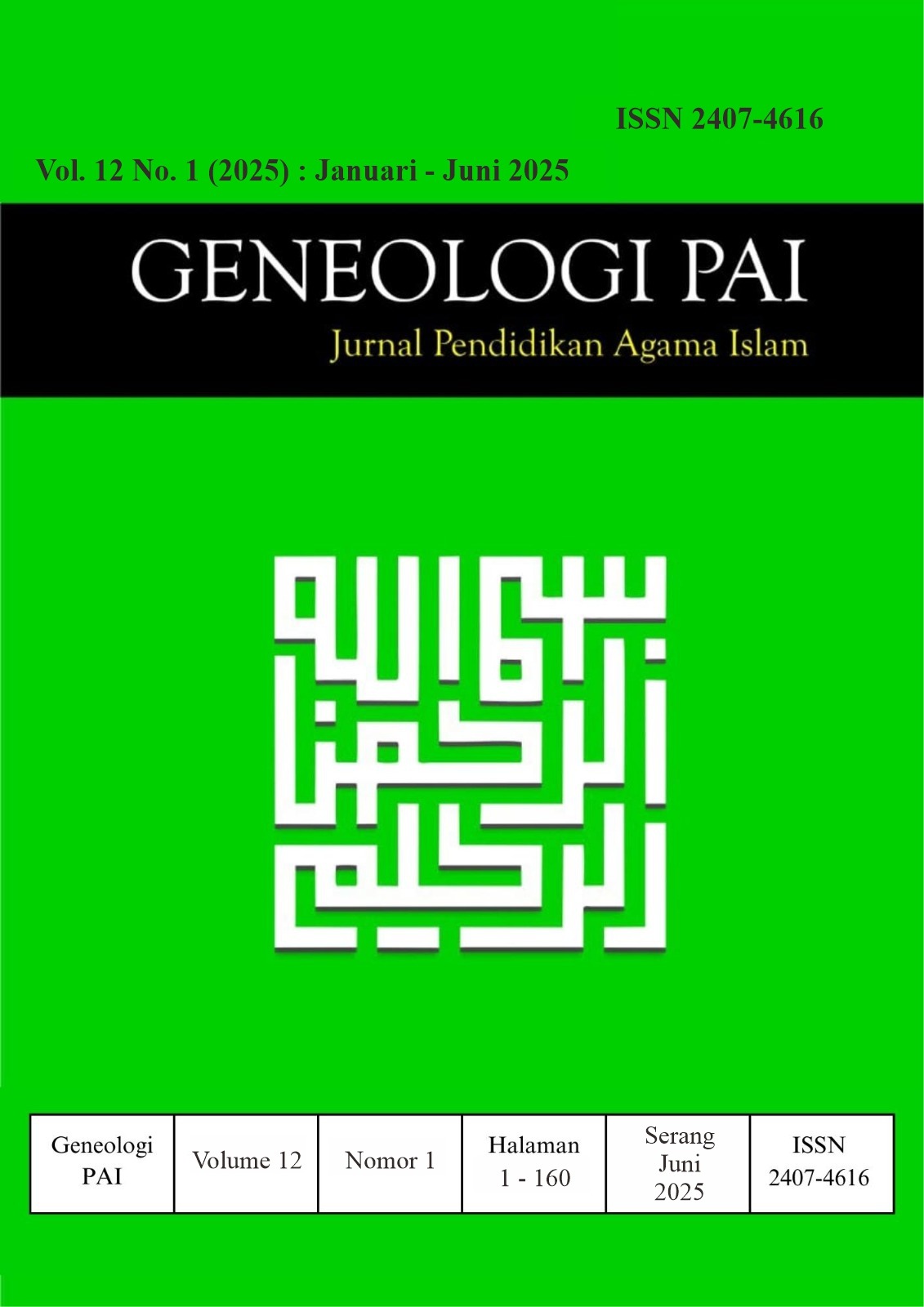Innovative Approaches in Islamic Education: Imre Lakatos' Methodological Paradigm and Its Implications
 DOI:
DOI:
https://doi.org/10.32678/geneologipai.v12i1.10748
 Abstract viewed : 148 times
|
Abstract viewed : 148 times
|  pdf downloaded : 96 times
pdf downloaded : 96 times
Keywords:
Methodological Paradigm, Imre Lakatos Research Program, Islamic Education.Abstract
Along with the development of the times, human knowledge is increasingly developing so that branches of Islamic education science are born. The progress of the times is also inseparable from the birth of new complex problems, especially in Islamic education. this requires multidisciplinary science to be able to formulate innovative solutions with the Imre Lakatos paradigm and its implications in Islamic education. This research uses qualitative methods (library research). The data used is from Primary and secondary sources generated from several literatures and the presentation of data presented in the form of descriptive . Then, this research aims to explain the paradigm of Imre Lakatos' thinking methodology. In the research program methodology Imre Lakatos says that knowledge is sustainable and the core of his thinking is hard core, protectives-belt, and a series of theory. Lakatos' research program uses the heoristic method. Its relevance to Islamic education lies in the Qur'an and Sunnah which are the core of Islamic understanding serving as the main pillars on which Islamic studies are built. Both are known as protective belts because they have absolute quality and can be understood in various scientific contexts.
Downloads
Downloads
Published
How to Cite
Issue
Section
License
Copyright (c) 2025 Yasri Mandar, Musdalipah Putri, Ahwil Lutan Hidayah, Yusron Hidayat, Sofwatun Nida

This work is licensed under a Creative Commons Attribution-ShareAlike 4.0 International License.
Geneologi: Jurnal Pendidikan Agama Islamhttps://ftk.uinbanten.ac.id/journals/index.php/geneologi is licensed under aCreative Commons Attribution-ShareAlike 4.0 International License.
An author who publishes in Geneologi: Jurnal Pendidikan Agama Islam agrees to the following terms:
- The author retains the copyright and grants the journal the right of first publication of the work, simultaneously licensed under the Creative Commons Attribution-ShareAlike 4.0 License that allows others to share the work with an acknowledgement of the work's authorship and initial publication in this journal
- The author can enter into separate, additional contractual arrangements for the non-exclusive distribution of the journal's published version of the work (e.g., post it to an institutional repository or publish it in a book) with the acknowledgement of its initial publication in this journal.
- The author is permitted and encouraged to post his/her work online (e.g., in institutional repositories or on their website) before and during the submission process, as it can lead to productive exchanges, as well as earlier and greater citation of the published work (See The Effect of Open Access).
The names and email addresses entered in this journal site will be used exclusively for the stated purposes of this journal. They will not be made available for any other purpose or to any other party.









